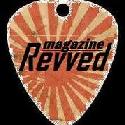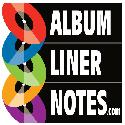
(click on picture to open file)
By: Michael D. Vogel
© May 1996. Michael D. Vogel. All Rights Reserved.
Published in:
Totally Adult magazine – May 1996
As a balance to the WXPN feature, I thought an in-depth look at the mind-set of a different type of Public Radio station would be interesting. KCRW in Los Angeles immediately came to mind. Although it offers a much broader spectrum of programming, including a healthy portion of news and information, KCRW never the less has a tremendous impact on the musical tastes of LA.
To get an idea of the philosophy that propels this truly world-renowned entity, I asked our very own Michael Vogel (a successful programmer and on-air personality in his own right) to sit down with the station’s Music Director, Chris Douridas, and talk. This interview is a result of their conversation. – John Schoenberger
Is there a preplanned, thought-out approach to achieving the uniqueness aspect the station holds?
Chris Douridas: “KCRW is unique in several ways. The most obvious being that we have a good balance of music, news and public affairs. We’re not a music station throughout the day. Between daylight hours, we have three hours of music of music, that’s Morning Becomes Eclectic with me. The rest of the daytime hours are news and public affairs. We don’t return to music again until 8pm, with Jason Bentley and Metropolis followed by Tricia Halloran and Brave New World. Essentially, the weeknight and weekend hours are devoted mostly to Alternative Music at KCRW. But that’s what makes us very unique. For a lot of people, KCRW is a music station. But when you look at it, we really don’t have a lot of airtime devoted expressly to music, very little of which is spent during daytime hours. That’s sort of a hurdle or handicap for us within the music business. But, I think it’s this balance and combination of all those different elements that make KCRW unique and special. You might be hearing news about events in Bosnia at one minute and then a garage band from Boston the next.
“With our approach to music, we are unique for several reasons. We are one of the few stations in the country that listens to absolutely everything that is sent to the station. Every piece of music, from cassette to CD, DAT, demo tape or a major label release, we listen to them all.”
Is there any hierarchy of what gets listened to first or priority wise?
CD: “The first artists we listen to are those we recognize or are excited about. The new and anticipated projects we are aware of are the first priority followed by those records that look interesting to us or catch our attention. As major projects pile up, we pull those major projects being worked by various promotion people and record company reps as to help accommodate their tracking needs. We try to crank through everything as it comes in. So, basically, the priority is just to get through it all.
“The decision process when listening to the mail is simply to keep it or not. Once the song has been out into the library, it is available for all our staff to listen to, as well as incorporate into their programs.”
Does each program host have complete autonomy with regards to the programming of their own shows?
“Each programmer has complete control over what elements are part of their individual show. If I feel over time it’s going the wrong direction, I’ll step in. Otherwise, my main programming philosophy centers around hiring people I trust to present an interesting and courageous radio program. It would probably be very stifling and boring for the listener to hear a radio show that was predetermined by someone other than that show’s programmer.
“We have totally different needs to fill than commercial radio does. I would agree that both commercial and public radio are thinking about the audience. But commercial radio also considers advertisers as well as ratings, where as public radio tends to concentrate more exclusively on the audience. Although there is a certain amount of ego involved when programming each show, I constantly preach the importance of programming with the audience in mind.
“The idea being that, with each programmer, we’ll be getting a solid show from the moment it begins to the moment it ends. The songs played reflect their absolute favorites from the new material. Each programmer has different tastes, histories and experiences. Because our lives are forged in different ways, we don’t expect each programmer to suit every listener all the time. As long as we’re committed to those songs and we stand behind each one of them, I think we’ll remain on the right track.”
When you look for programmers, do you actively seek out the “music freaks,” those that are open and receptive to absolutely everything that’s out there?
“The taste and vision of the musical landscape has to fit in with the overall KCRW vision. It’s just like casting a movie, when putting a color scheme’ together for art direction, you have to cast the ingredients properly.
“We are different from college radio block programming though. There’s a strong roster of artists that cross into each of the programs, helping to promote some common ground. The glue between all of the programs are these shared artists. If you look at our Top 600 for example, the playlist generated each week reflects actual airplay from the prior week. After each program, we reconcile the playlist with the computer so that the chart reflects accurately the most played titles for the week.
“There are ingredients in the music pile that I know I’m going to play and promote during my show. I have a general idea of what I’m going to start my show with. But, it’s also important to check how a song ends before it airs. The end of one song should open the door that leads to the next song. It’s the art of the segue, which is what helps hold the station together.
“Every time I listen to one of the other programmer’s show, I hear something that I didn’t hear before. They might have picked up on tracks that I missed or they might find an import to incorporate into their show. It is imperative to remember though, that along with all this new music, it is equally important to play some familiar artists as well. Otherwise, you tend to loose even the most ambitious and hungry listener.”
Are the programmers encouraged to bring in their own music?
“They are absolutely encouraged to do so! We live in Los Angeles, where people are involved in other things besides KCRW. We are out in the world, working in other areas of the music and film business, bringing things back to the station as sort of a ground zero, a headquarters, where we share these things with the other staff members. It is as if we are musical painters in front of a blank canvas painting a musical soundscape.
”If there’s a record that comes through the mail that I’m passing on, I’ll pass it to those programmers that it most likely will appeal to. I could give you so many examples of records we’ve passed on that have gone on to be huge. I think we’re one of a handful of stations that didn’t play Hootie & The Blowfish. It is always up to the individual programmer which songs get airplay on their respective shows.”
Does each of the programmers actively seek out imports or has the station already established that channel for them?
“We get mail from all corners of the globe, because we’ve developed those relationships over the years. Our playlist is even sent out around the world as well. Our local audience is not typical of that of radio. It is filled with decision makers, doers and industry people. We don’t have the biggest audience, but I feel we have the best audience – it’s quality over quantity! There are filmmakers, producers, composers, artists, and record stares, along with John Q. Public, who are tuning in to (listen to) us. These are the people who find what we’re doing to be most appealing.”
What type of approach do you employ when programming the “live” musical elements on Morning Becomes Eclectic?
“As a flagship program for the station, it lives and breathes with regard to what’s coming out in the world. There are ebb and flow periods where at any one time there can be an over preponderance of world music and at other times a plethora of jazz and still others where there is a lot of alternative sounding bands. Things are never just status quo for too long. We try to do our part and bring the record business artists who we come across, but at the same time, we’re just reflecting what directions new music is taking. There might be a record coming out from India that’s really cool, so we’ll throw that in, but the balance may sort of shift. There may be less world music or international music in the mix right now, but then maybe in three or four months it might shift the other way. We’re just playing what we consider to be the best new music in the world.
“Programming music though, is a daily thing. It helps make the show sound different every day. Also, the show will vary depending on what guests will be part of that morning’s program. With the Cowboy Junkies, I featured music that segued nicely with their sound, such as Neil Young’s score to Dead Man, Mazzy Star and Mojave 3.
“Almost daily we have a performance or live interview. There is obviously a lot of hard work that goes into putting a live performance together. But, if we don’t have a guest, then we’ll continue with normal music programming. Because we live in Los Angeles, we have a luxury of having a lot of artists come by the station. IN one week alone we had visits from Mike Scott, the Beatles producer George Martin, Lou Reed, Yoko Ono, Chris Difford of Squeeze and Patti Smith. With guests like these, you’re going to do everything within your power to make them happen.
“When artists come to town, they’ll call us with their available dates and then we try and book around them. Sometimes they’ll take some down time in LA and we’ll book them even though they aren’t promoting a local show, which seems to happen quite often. We keep in close contact with the local hardcores, from Ry Cooder to Michael Penn to the band X. It’s not just artists though. We try and keep in close contact with producers, and sometimes the engineers. We have had a lot of top producers on the show as well. In addition to George Martin, Brian Eno, Daniel Lanois and Mitchell Froom have all stopped by our studio. These are some of the greatest producers in the world! It is people like this that help shed a whole new light on the artistry from the musicians who they work with. It is very compelling to hear Brian Eno’s approach to working with Larry Anderson or with Elvis Costello on the X-Files soundtrack.
“We don’t just stop there, with only the artists and producers. We recently had Chris Carter, the creator and executive producer of the X-Files on Morning Becomes Eclectic. He was able to share with our audience what goes on in the making of the television show, where the ideas for each episode come from, the upcoming soundtrack of songs inspired by the TV show, as well as the pending feature film. If there is a creative person who has some musical abilities we admire, KCRW will try to arrange an on-air dialogue, whether they are actors, producers or musicians.
“Before the opening of Georgia, Jennifer Jason Leigh came by the station with John Doe to sing some of the songs she performed in the film. That is another example of an actor who has musical abilities being showcased on KCRW.”
What are the ins & outs of how the station’s CD “Rare on Air” is prepared? Is it an important revenue source of underwriting at the station?
“We license tracks that we consider to be the best of our live performances. Each track is produced by KCRW in conjunction and cooperation with our engineer, and technical director, Bob Carlson. All the artists donate their performance royalties to the station, while we pay for all fees incurred from the publishing royalties.
“We secured a deal with Mammoth Records to distribute the CD worldwide. All the royalties from the sale of the disc directly benefit the station. In addition, we are also allotted a 5,000-disc advance to sell on-air during fundraising drives. Each CD goes for $20 to $45 a piece. So far, the station has raised more than $300,000 from the sale of the first two Rare On-Air discs.
“The production and distribution of Rare On-Air is part of our ongoing effort to find alternative sources of funding for KCRW, in the wake of these potential congressional funding cuts for public broadcasting.
“In addition, we also get some underwriting assistance from various record stores and occasionally from the record companies themselves. As far as benefit concerts are concerned, this is somewhat uncharted territory for the station. We have only done some very small-scale musical events. Currently, we are working with the Wiltern to present a more large-scale benefit show that is conducive to what KCRW is all about.
“Currently, our main focus is to take everything online. Essentially, we are in the process of building a website. The rough parameters are in place now. We can be reached at www.kcrw.com or at our email address, mbe@kcrw.org. Most of the recent archives for Morning Becomes Eclectic, live performances and interviews, are all part of our website. The user is able to download any of these live performance programs. Currently, we are also shooting a lot of live performance videos as well. This will enable the online user to download video performances as well as audio. The whole thing should be ready to go very soon.
“In addition, we are also in the process of developing a companion website for Morning Becomes Eclectic. It basically will repackage everything that has aired on the program. This will be a totally separate website, but will have linkage capabilities with the KCRW website. It really is going to be some pretty amazing stuff.
“As far as federal funding and cutbacks are concerned, we are in a wait and see holding pattern. We are taking steps to help bolster our securities and Rare On-Air is certainly a major asset in that regard. But, for the most part, we are just a little more careful with our operating costs and expenditures than we used to be. Even with the cutbacks and the limited financial support from Washington, we really haven’t lost that much. It seems to be more of a non-issue at the moment, but that doesn’t mean it can’t explode in our face at any time. Unfortunately, there is nothing currently in the Telecommunications bill that provides a future for public broadcasting. For the most part, everything is still up in the air.
“As far as fundraising is concerned, in terms of the music department, our best effort is put toward maintaining the Rare On-Air project. For the most part, the music-oriented shows are doing quite well for the station. We’ve set records on Morning Becomes Eclectic on our last two pledge drives.”
What kind of new tactics are being employed by the station with the eminent decrease in federal funds?
“We see the website as a future source of revenue for the station. It is somewhat of a secret weapon in the making. But the writing’s on the wall, and we are reading it loud and clear. Because this is an election year, and this is a very delicate, yet nasty subject, Congress is trying to put if off as long as possible. It would be great if we were totally financially independent, but we are not commercial radio and therefore have a whole different set of goals that we try to achieve. There will be no knee-jerk reaction from us when our Federal funding is reduced. They key is to plan for the future; and we can pretty much see what the future holds for public radio.”
How important is it in the programming effort to reflect the station as a ‘tastemaker’ radio station? (When a record is played on KCRW, there is a direct sales correlation at tastemaker record stores.)
“There can be no conscious programming effort toward achieving that kind of end result. Once you become aware of what it is you are doing, on a programming level, you are changing your whole perspective on how to program. (Once you become aware of the camera – you’re sunk!) We try to be as current and up-to-date as possible. If we are told that something is going to be the next ‘big thing’ we will consider it with the same priority the other new material receives. We don’t need promotion people to tell us what the hits are going to be. Those (kind of) calls take time away from the real work, meticulously listening to every record that comes into the station.
“If a programmer waits for someone to tell them where the buzz is, then they have already lost the battle. Because we try to remain open and objective, we are better able to promote imports and unsigned artists. KCRW is a station that is programmed based on instincts and gut reactions. To be called a ‘tastemaker’ is nice, but it suggests we’re a trend chaser and that is not what KCRW is about. We try to present the most compelling music that we come across in our daily lives. But, if a record has an impact on the tastes and decisions of our listeners, it helps reinforce the democratic programming philosophy of the station.” ^m^
Website:
© May 1996. Michael D. Vogel. All Rights Reserved. This originally appeared on the Vogelism blog at https://www.vogelism.com authored by Michael D. Vogel. This article may be shared or reprinted as long as the entire copyright message, including the source location of this article, accompanies it.
















 Welcome to Michael D. Vogel’s online portfolio. I am a Los Angeles-based music journalist/content creator, and self-professed music-fanatic/radio-aholic. With more than 20 years of experience in multiple facets of the music industry including; music programming/air talent for terrestrial and internet radio as well as record label artist promotion, I have a finger on the pulse of what's new and under the radar in the emerging music scene. Areas of specific expertise include, but not limited to: rock (heritage, mainstream, heavy metal/hard rock and alternative), pop and adult contemporary, as well as radio, pop culture, sports, exercise and politics. I am applying my passion for music as a freelance writer for the Examiner as National Music Examiner (Examiner.com) in addition to West Coast Editor for FreeGotham (FreeGotham.com). Find me at michael@vogelism.com.
Welcome to Michael D. Vogel’s online portfolio. I am a Los Angeles-based music journalist/content creator, and self-professed music-fanatic/radio-aholic. With more than 20 years of experience in multiple facets of the music industry including; music programming/air talent for terrestrial and internet radio as well as record label artist promotion, I have a finger on the pulse of what's new and under the radar in the emerging music scene. Areas of specific expertise include, but not limited to: rock (heritage, mainstream, heavy metal/hard rock and alternative), pop and adult contemporary, as well as radio, pop culture, sports, exercise and politics. I am applying my passion for music as a freelance writer for the Examiner as National Music Examiner (Examiner.com) in addition to West Coast Editor for FreeGotham (FreeGotham.com). Find me at michael@vogelism.com. 